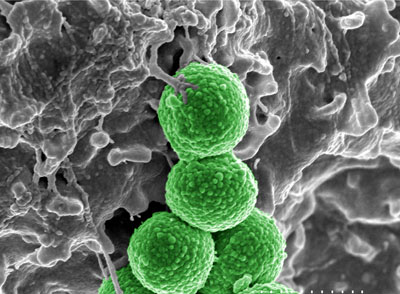Rise of antibiotic-resistant superbugs an ‘apocalyptic threat’ to humanity, say experts

In the very near future, an “apocalyptic scenario” will more than likely emerge in which simple infections become deadly killers that are completely untreatable using modern medicine. This is the opinion of several prominent medical experts, including the U.K.’s Chief Medical Officer Dame Sally Davies, who recently made these and other chilling statements about the future of antibiotic-resistant “superbugs” and their threat to humanity.
As reported by the U.K.’s Guardian, current antibiotic options could become completely obsolete in as few as 20 years, triggering a national emergency that can only be compared to something like a large-scale terrorist attack, or pandemic flu. As doctors continue to indiscriminately dole out antibiotics to their patients, and factory farmers inject their livestock with antibiotics to offset filthy conditions, antibiotic resistance is reaching a critical tipping point.
Based on an annual report she plans to publish this spring, Davies is urging the British Cabinet Office to add antibiotic resistance to the National Risk Register, which highlights pertinent threats that could result in civil emergencies. Quite literally referencing the situation as a potential “apocalyptic scenario,” Davies and others insist that if the issue is not taken seriously and properly addressed by health authorities, patients admitted to the hospital for simple operations could end up dead as a result of infection.
“There are few public health issues of potentially greater importance for society than antibiotic resistance,” explained an urgent Davies to The Guardian. “It means we are at increasing risk of developing infections that cannot be treated … This is why we will be publishing a new cross-government strategy and action plan to tackle this issue in early spring.”
Conventional medical treatments exacerbate superbug problem, admit experts
The report will explain, in detail, how antibiotics spur the mutation of harmful bacteria into more virulent strains over time, making infections increasingly more difficult to treat using drugs. It will also highlight how leftover bacterial colonies that survive drug treatment gradually develop resistance as well, with fewer and fewer new drugs available to treat them.
“In the past, most people haven’t worried because we’ve always had new antibiotics to turn to,” added Alan Johnson, a consultant clinical scientist at the U.K. Health Protection Agency (HPA), about the problem. “What has changed is that the development pipeline is running dry. We don’t have new antibiotics that we can rely on in the immediate future or in the longer term.”
Antibiotics are not the only major factor responsible the superbug epidemic, however. According to the same report, technological “advances” have also made available treatment options less effective. Conventional cancer treatments like chemotherapy and radiation, for instance, admittedly weaken patients’ immune systems, making them more prone to infection. And the use of catheters to assist in the elimination of urine can also increase the risk of pathogens entering the bloodstream.
The end result of all this has been a dramatic increase in the prevalence of superbugs all across the board, and particularly at hospitals where sick patients are constantly spreading germs. According to the figures, as many as 80 percent of all gonorrhea cases today are resistant to treatment with tetracycline, which is the standard treatment for this type of infection. Multi-drug resistant tuberculosis (TB) and methicillin-resistant Staphylococcus aureus (MRSA) are both on the rise as well.
Sources for this article include:
http://www.naturalnews.com/028441_superbugs_infections.html
Source: NaturalNews
By Ethan A. Huff

Yeah, well let them little buggers try my wife’s cooking. They’ll never survive.
A. Don’t eat meat. Or just eat organic meat and drink organic milk, dairy.
B. What can we do to take our governments back from preponderance
of corporate influence?
It’s becoming more and more dangerous just staying alive …… What an incredible mess.